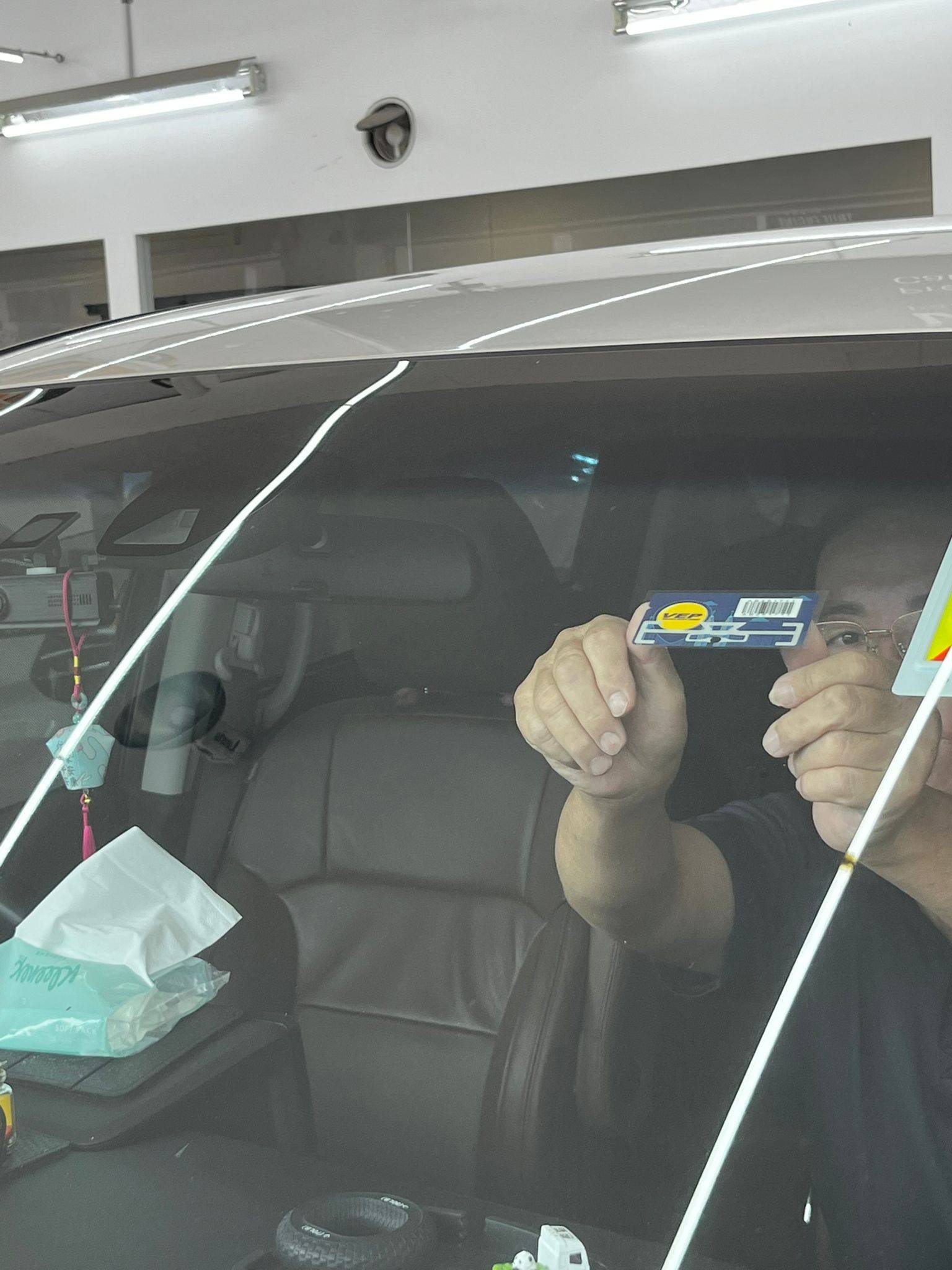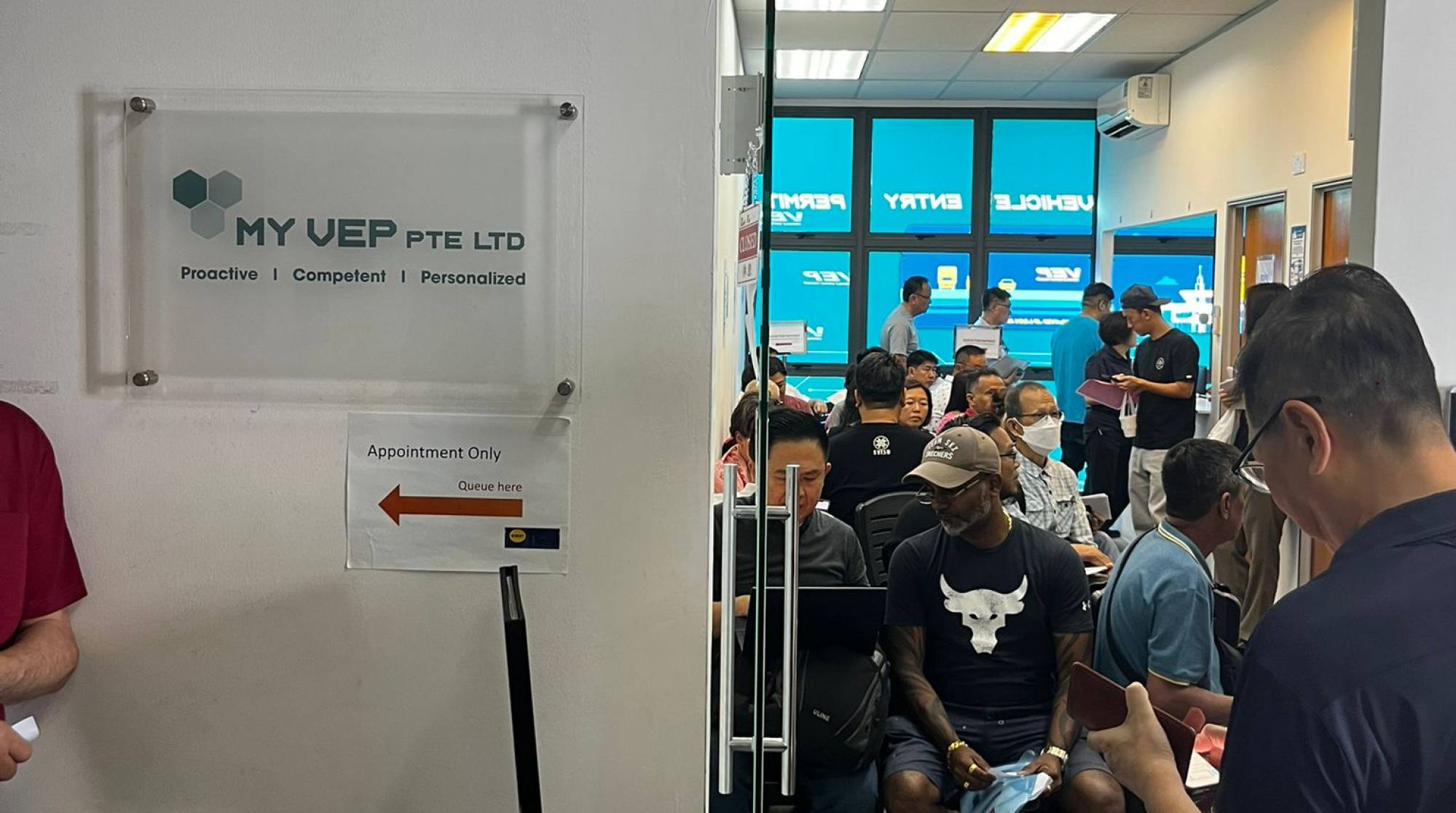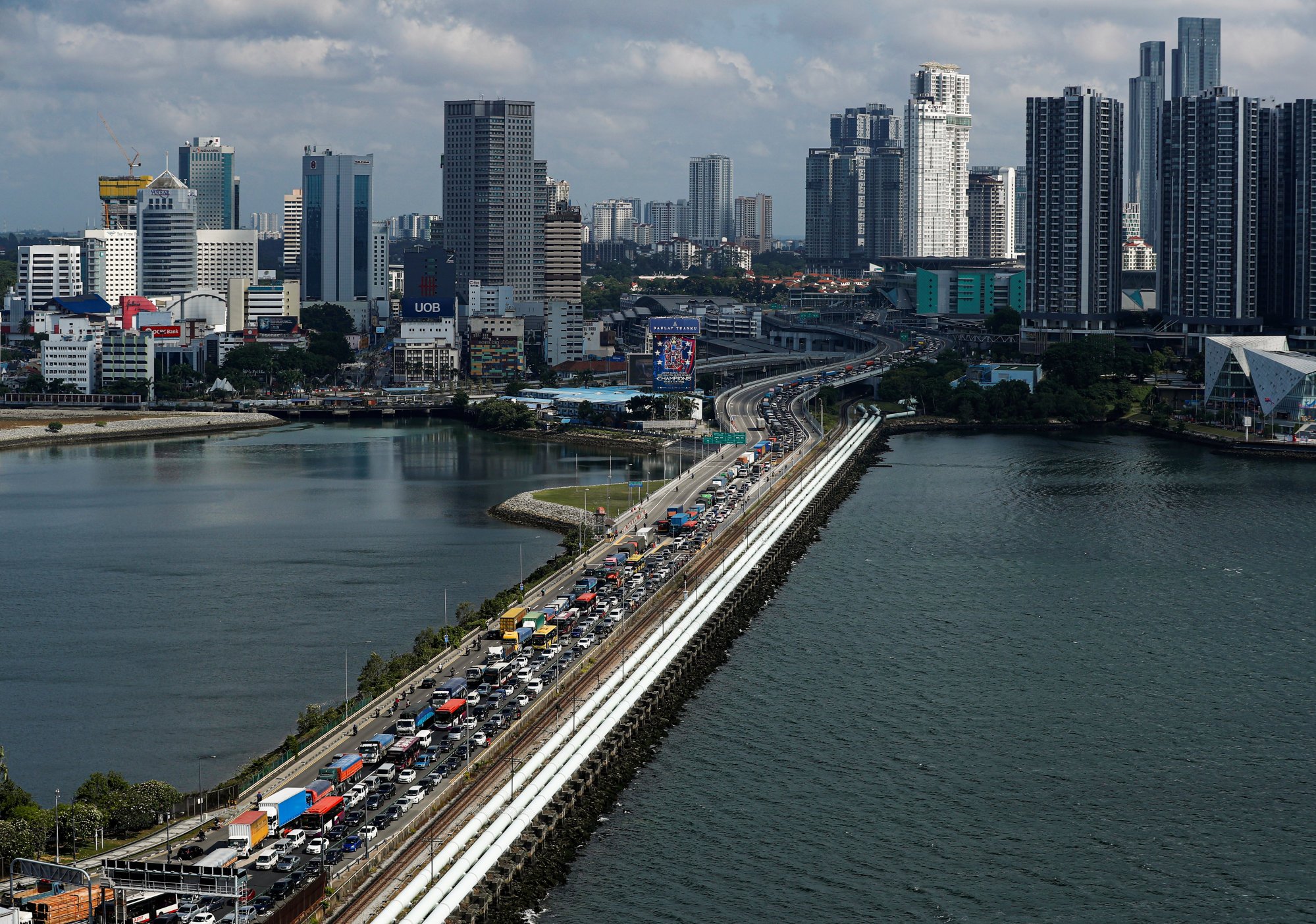Singapore motorists face on-the-spot fines as Malaysia enforces permits
Johor’s transport officers have set up a roadblock at the immigration checkpoint and issued fines to errant motorists

After years of delays, Malaysia began enforcing its Vehicle Entry Permit (VEP) scheme at the stroke of midnight on Tuesday, with Singaporean motorists crossing the Causeway without an activated permit facing on-the-spot fines of 300 ringgit (US$71).
Malaysia announced in May last year that all foreign-registered vehicles entering from Singapore would be required to use the VEP from October 2024, prompting a last-minute rush by Singapore drivers to register their cars and triggering a bottleneck in applications.
The permit uses a radio frequency identification (RFID) tag to track foreign vehicles and check for outstanding fines or traffic offences. First proposed in 2017, the scheme was postponed twice – in 2019 and 2020 – before enforcement finally began this week.
Minutes before the deadline, about 50 officers from Malaysia’s road transport department (JPJ) were seen setting up a roadblock at the Bangunan Sultan Iskandar customs, immigration and quarantine complex in Johor Bahru, according to local media.
Within the first hour of checks, 10 Singapore-registered vehicles were issued summonses, The Straits Times reported.
More than 300,000 people travel across the Johor-Singapore Causeway every day, making it one of the busiest land border crossings in the world.
Across the border in Singapore, a long queue formed at the VEP installation centre in Woodlands on Tuesday before it opened, as drivers with appointments went to get their vehicles tagged. However, once the centre opened at 9am, the queue moved quickly.

Eric Yeam, 63, a retired manager in a manufacturing company, told This Week in Asia that the application process for his VEP took between 10 days and two weeks. “Once you know the process and make an appointment, the application is very smooth.”
A staff member at the centre said that in the first quarter of the year the centre saw about 50 motorists a day, but over the past few days the figure surged to about 300 a day.
Davidson Chua, 25, applied for a VEP for his family’s car in September 2024. “It was quite tedious because that was when Malaysia enforced it to have all vehicles coming into Malaysia VEP ready by October 1, 2024,” the business owner said.
Chua noted that the JPJ website then was not easy to use and he had to email the authority to register the car since he had registered the car earlier but did not complete the process.
“This took us about a month and a half before we had to send in a reminder email for them to get back to us,” said Chua, who then went to the Danga Bay VEP centre to get his family’s cars tagged.
However, applying for his own car in May was a much smoother process and took about a week.
“From all my encounters driving into Johor thus far, the Johor side don’t seem to bother about the VEP and we still haven’t seen the use and benefit of it other than feeling ‘at ease’ that we got it tagged. But this was before today,” said Chua, who drives across the Causeway weekly for leisure, petrol and groceries.
Following the news of the roadblock, netizens were quick to express scepticism over whether Johor would enforce the scheme.

“Give it a few months,” wrote one user on Reddit, while another said : “Remind me what enforcement looks like in December.”
Chua, who also runs Telegram channels Singapore Car Meets and SG Cars, which have over 11,000 and 7,000 subscribers, respectively, said: “The general sentiment is that it will ultimately be enforced but from what we’ve seen over the last year, the enforcement was in stages and each time it gets tighter and stricter.
“Ultimately, I think Malaysia and the JPJ also have to do their part to make sure that the tagging process is fuss-free and efficient, if not people will just give up applying for it, which was what happened last year when the system was inefficient.”
Many Malaysian motorists, however, have welcomed the enforcement of the VEP on Singaporean cars, saying it is “about time” Malaysia began tagging vehicles from the city state entering their country.
“Singapore has had its system for Malaysian cars for a long time already, so it’s good that we are finally catching up,” said Johor Bahru resident Ismail Hanaffi.
Malaysians have long complained that Singaporean cars can cross back into Singapore without settling their traffic summons, while Malaysian drivers must pay theirs before returning home.
JPJ said on Tuesday that as of June 29, 248,504 VEP tags had been issued to private individual vehicles, of which 206,088 had been installed and activated. It noted that 42,416 of the tags had not been activated.
JPJ director general Aedy Fadly Ramli said that summonses would be issued to all Singaporean motorists driving privately owned vehicles who had yet to register and install the VEP, regardless of reasons given, including drivers who claimed they were entering Johor Bahru to settle VEP matters.
“We have given enough time. It was announced seven years ago, and during that time we have made many efforts to encourage Singaporeans to register for it. So from July 1, if they come in without a VEP registered and fixed [on their vehicles], we will issue summonses,” Aedy said.